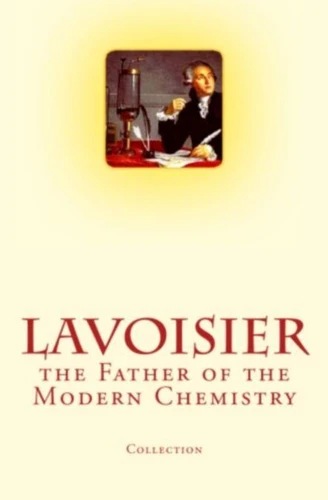Lavoisier: the Father of the Modern Chemistry
Par : , ,Formats :
Disponible dans votre compte client Decitre ou Furet du Nord dès validation de votre commande. Le format ePub protégé est :
- Compatible avec une lecture sur My Vivlio (smartphone, tablette, ordinateur)
- Compatible avec une lecture sur liseuses Vivlio
- Pour les liseuses autres que Vivlio, vous devez utiliser le logiciel Adobe Digital Edition. Non compatible avec la lecture sur les liseuses Kindle, Remarkable et Sony
- Non compatible avec un achat hors France métropolitaine
 , qui est-ce ?
, qui est-ce ?Notre partenaire de plateforme de lecture numérique où vous retrouverez l'ensemble de vos ebooks gratuitement
Pour en savoir plus sur nos ebooks, consultez notre aide en ligne ici
- Nombre de pages58
- FormatePub
- ISBN978-2-36659-121-7
- EAN9782366591217
- Date de parution24/02/2016
- Protection num.Adobe DRM
- Taille276 Ko
- Infos supplémentairesepub
- ÉditeurLE MONO (EDITIONS)
Résumé
So great a change ensued in experimental chemistry, and in theory and nomenclature, and such a mass of facts was coordinated and explained by Lavoisier that he has been justly called "the father of modern chemistry." He was the first to explain definitely, the formation of acids and salts, to enunciate the principle of conservation as set forth by chemical equations, to develop quantitative analysis, gas analysis, and calorimetry, and to create a consistent system of chemical nomenclature.
His memoirs and contributions to the Academy were of extraordinary number and variety. His life in other fields was romantic, full of interest and a social triumph, but sadly destined to end in tragedy. In 1764 Lavoisier gained the prize awarded by the Government of Louis XV for the best method of lighting the streets of Paris and other large towns, and elaborate experiments on the subject are to be found in the memoirs of the Académie des Sciences-"the greatest scientific body on earth"-as the illustrious Academy has been called by a distinguished American writer; and in 1768 Lavoisier was elected one of its members.
His memoirs and contributions to the Academy were of extraordinary number and variety. His life in other fields was romantic, full of interest and a social triumph, but sadly destined to end in tragedy. In 1764 Lavoisier gained the prize awarded by the Government of Louis XV for the best method of lighting the streets of Paris and other large towns, and elaborate experiments on the subject are to be found in the memoirs of the Académie des Sciences-"the greatest scientific body on earth"-as the illustrious Academy has been called by a distinguished American writer; and in 1768 Lavoisier was elected one of its members.
So great a change ensued in experimental chemistry, and in theory and nomenclature, and such a mass of facts was coordinated and explained by Lavoisier that he has been justly called "the father of modern chemistry." He was the first to explain definitely, the formation of acids and salts, to enunciate the principle of conservation as set forth by chemical equations, to develop quantitative analysis, gas analysis, and calorimetry, and to create a consistent system of chemical nomenclature.
His memoirs and contributions to the Academy were of extraordinary number and variety. His life in other fields was romantic, full of interest and a social triumph, but sadly destined to end in tragedy. In 1764 Lavoisier gained the prize awarded by the Government of Louis XV for the best method of lighting the streets of Paris and other large towns, and elaborate experiments on the subject are to be found in the memoirs of the Académie des Sciences-"the greatest scientific body on earth"-as the illustrious Academy has been called by a distinguished American writer; and in 1768 Lavoisier was elected one of its members.
His memoirs and contributions to the Academy were of extraordinary number and variety. His life in other fields was romantic, full of interest and a social triumph, but sadly destined to end in tragedy. In 1764 Lavoisier gained the prize awarded by the Government of Louis XV for the best method of lighting the streets of Paris and other large towns, and elaborate experiments on the subject are to be found in the memoirs of the Académie des Sciences-"the greatest scientific body on earth"-as the illustrious Academy has been called by a distinguished American writer; and in 1768 Lavoisier was elected one of its members.



